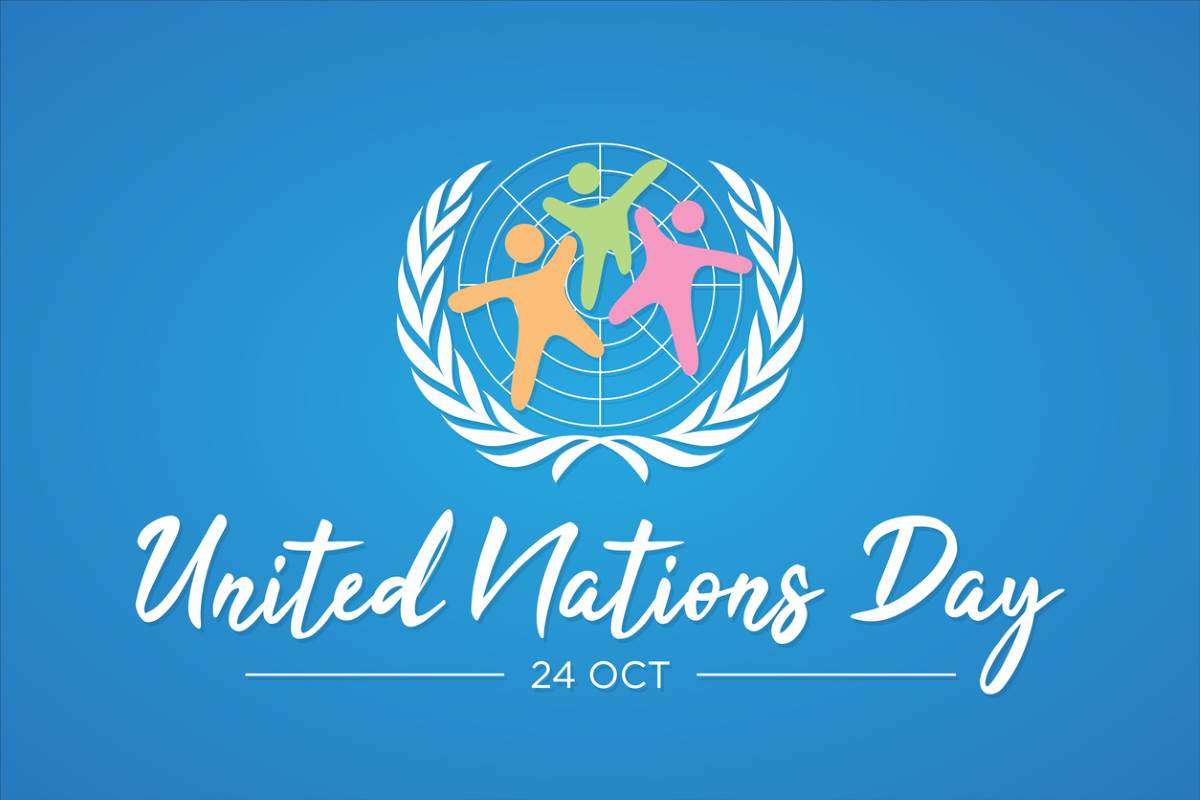United Nation’s Day: Is it relevant today?

By Colonel Satish Singh Lalotra
‘The UN wasn’t created to take mankind into paradise, but rather, to save humanity from hell.’—Dag Hammarskjold.
The planet of ours was never ever so much endangered by its own citizens in the last few centuries as it has been now in the last one hundred years or so.
Facing near obliteration of some of its races notably the Jews as also some of the lesser known communities like the Kurds, Gypsies, Roma or Romany (an ethnic group of Indo-Aryan origin) at the hands of few despotic rulers, the world bore the brunt until the first of world bodies like the ‘League of nations’ erupted on the world firmament to instill a modicum of peace and stability in the world order.
That this unique effort of the world in restoring peace failed abjectly within few decades of its birth and gave way to a much larger conflagration in the form of 2 WW, drilled sense in the world community that the ‘Arbitrator of world peace’ had to be this time much more stronger, visible by its non-partisan role, and not drawn by any power blocs who ruled the roost after such a devastation as seen after the horrendous crimes in the form of concentration camps and bombings over Hiroshima & Nagasaki.
Thus was the painful birth of the UN in 1945 which took place at the altar of beholding world order that was torn asunder by despots which swelled the ranks from Italy, Germany to Japan.
Welcome to the day of 24th October when the world famous arbitrator of nation-states the UNO, formally adopted its UN Charter seventy nine (79) years ago in 1945 immediately after the guns of allied & axis forces fell silent thus signifying curtains down on one of the bloodiest wars the humanity was to witness.
The formation of UN after having been ratified by the big 5 ( five) China, France, USSR, UK & US as also a majority of other signatory countries was one of the seminal occurrences of humanity with unparalleled benefits.
In the recent times such big international days with wide ranging ramifications have often been identified by a particular theme with overarching importance in that particular year of celebration.
This year the prevailing theme that has been associated with the UN day celebration has been focused on -‘Sustainable development goals 8 & 17’.
In fact the year of 2015 was a water shed in the entire history of UN , when all member countries converged on this esteemed world platform and adopted 17 (seventeen) SDGs (sustainable development goals) with the avowed aim of creating world peace and prosperity for people and the planet while tackling climate change and working to preserve oceans and forests (the two life givers to a living being).
Since the “UN day” has been associated with the formal adoption of the UN Charter, it would be relevant in the first case to have a brief “run-down” of the key points of this UN Charter-
* To maintain international peace and security, to take effective collective measures for the prevention of and removal of threats to the peace, and for the suppression of acts of aggression or other breaches of the peace as also to bring about by peaceful means settlements of international disputes.
* To develop friendly relations among member nations based on respect for the principle of equal rights and self-determination of peoples to strengthen universal peace.
* To achieve international cooperation in solving problems of an economic, social, cultural or humanitarian character without distinction as to race, sex, religion or language.
* To be a center for harmonizing the actions of nations in the attainment of these common ends.
* The principles of sovereign equality of all member countries, in accordance with the UN charter without the application of coercive methods of any kinds.
Be that as it may, the moot point over here is that with the fast changing Geo-strategic concerns across the globe, this world body has come under increasing stress to stick to the core principles as found enshrined 80 years ago.
As wars &humanitarian crises cum ‘Force Majeure’ unfold in their devilish forms viz Hamas/Hezbollah – Israel conflict, Russo- Ukraine conflagration, remnants of Covid-19 pandemic and now the latest Iranian missile barrage a few days back on Israel with the UN secretary General maintaining a studied silence has made the world worry that the UN is increasingly incapable of organizing and mounting effective riposte to these challenges in the form of multilateral responses.
With Israel banning the entry of UN Secy General Antonio Guterres into Israel as an arbitrator , the very ‘locus standi’ of this world body is on a cliff hanger.
In the 1950s, the second Secretary General of the UN ‘Dag Hammarskjold’ famously remarked-‘UN was not created to take us into paradise, but rather, to save us from hell’ unquote.’ By that standard, the UN has been effective.
Since its establishment in 1945, we have indeed been spared another world war. But is that enough for the world body of UN which was formed on the anvil of near destruction of mankind as was seen in the concentration camps in Germany, Poland, and Hungary etc.?
Or is there still some room left for deft handling of current Geo-political concerns plaguing the world that have all the makings of spiraling out of control yet again plummeting the world into an abyss of unseen sufferings?
It has been given to understand that most nation- states act both unilaterally and multilaterally; the former in defence of their national security or in their immediate backyard, the latter in pursuit of global causes.
For the larger a country’s backyard, the greater the temptation to act unilaterally across it and this in recent years has been rather acute in the case of USA.
Does it mean that the ‘Anglo-American/ group of countries have hijacked the UN Charter twisting and turning it as per their wont oblivious to the Geo-political concerns of other member nations? It doesn’t seem to be so when seen objectively across various conflagrations that have been not on ‘America’s radar of doing’ across the world.
The votaries of UN being a relevant organization till date have so many good things to say that include spectacular economic growth in the developing countries, reduction of child mortality rates, spread of literacy across the globe and throwing off the so called yoke of colonialism from the third world with many within the former USSR asking for more Geo- political freedom as has happened with present day struggle by Ukraine.
As per these votaries of UN all these gains were not possible had the umbrella protection not been afforded by this august organization to the world at large.
So far so good. But has the present day UN aligned with the evolving Geo- political necessities of the world? The UN has failed to prevent a meaningful dialogue in its various deliberations and also abjectly failed to mount a successful riposte to various conflicts all over the world.
Moreover the UN system mirrors deeply unequal global structures of power along racial and gender lines with just a few countries holding most of the power.
The UN straddles an uneasy gulf between its high ideals and the messy compromises that were needed to create it in the first place. Today’s great -power competition has placed enormous pressure on the UN, because none of the vying powers wants to be constrained by the system.
Since the UN’s birth, the permanent five veto-wielding members of the UNSC have reserved the right to block any resolutions that go against their national interests.
Over time, such obstructions have reduced the UN’s effectiveness and legitimacy, since it regularly makes the organization appear ineffectual at achieving its primary mandate: securing international peace.
Has the world body forgotten the number of times China ( veto -wielding power) blocked Indian attempts in the UN to categorize Pakistan as a terrorist state and put blocks in extradition of notorious and wanted terrorist Hafiz Sayeed to India for standing trial ? There is a silver lining though.
Under the ‘Liechtenstein veto initiative’, a significant reform adopted in 2022 , the UNGA has a mandate to debate any motion that has been vetoed at the security council .
Through these debates-which have already been held over the Ukraine and Gaza crises -the UNGA can set out majority positions reflecting global opinion.
Moreover, the ten elected members of the UNSC have taken the General assembly’s stance to try to hold veto-wielders to account. These creative interpretations of the UNGA are born out of long -standing frustrations with the security council , which often cannot deliver on its mandate.
As smaller nation -states find innovative means to circumvent traditional impasses, they will both reiterate the UN’s importance and restore its relevance.
The arena of super power politics however will remain the Achilles heel of this world body.When people ask whether the UN is relevant today , they usually have in mind the UNSC (United nation security council) which as mentioned by me in previous paragraphs over here is definitely one of the most dysfunctional parts of the UN, largely due to the widening ideological gulf between the five( 5) veto wielding permanent members (P5) -usually pitting China, Russia on one side and the US, UK, France on the other.
But let us not forget the UN aid programmes aimed at feeding the hungry people or vaccinating children. Ask the war ravaged areas of Afghanistan, Somaila, Sudan etc, those who rely on the UN aid to survive -and their emphatic reply would be ‘UN’ is still relevant and their only glimmer of hope in an otherwise hopeless world.
That is not to say that the UN is a role model of efficiency. UN aid programs save lives but are often slow, bureaucratic, and occasionally marred by mismanagement.
In terms of human rights, the UN leadership is often too afraid to callout big powers. It tends to have a big blind spot when it comes to calling out China’s abuses in Xinjiang prefecture, Tibet, Hong Kong, and elsewhere. China represents a typical existential threat to the UN’s human rights architecture.
The UN is in a desperate need of a major root & branch overhaul. So what is the way forward to make the UN more relevant today? Institutional reforms to include the expansion of the UNSC to give a more representative outlook with countries from Asia & Africa, a more transparent funding of various UN bodies and a fundamental shift in the principles as found enshrined in the UN charter with equal binding on the P -5 members of the UNSC should be the proverbial ‘Sine quo non’ for aligning this world body with the ever fast changing Geo-politics of this globe.
Without adhering to the above , it is more than likely that this organization may meet the same fate that its predecessor the famed ‘League of nations’ met just before the onset of 2 WW i.e failure to prevent a world conflagration which in the present day and time is much more likely.
As the UN secy Gen Antonio Guterres said last year-‘UN should either reform or rupture’. The choice is entirely ours.
(The writer is a retired Army Officer)



